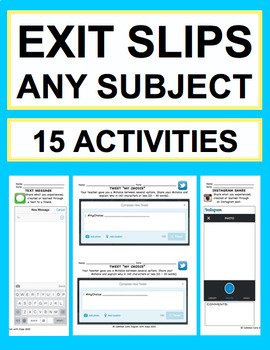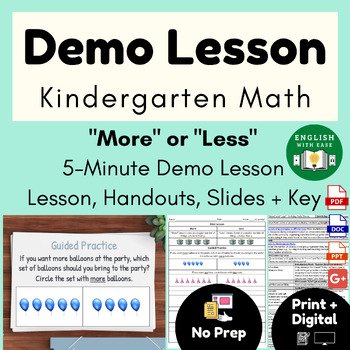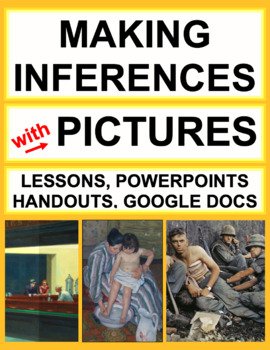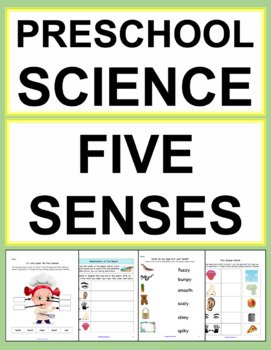Acing Your Teach For America 5-Minute Demo Lesson
What do you need to include in a teaching demo lesson for Teach for America, NYC teaching fellows and other teaching positions? Need no prep downloadable demo lesson materials to ace your interview tomorrow? We’ve got you covered! Teach For America (TFA) is renowned for its rigorous selection process, and the 5-minute demo lesson is a critical component. Read on for everything you need in a TFA (to other) 5-minute demo lesson. Walk in to your demo lesson with confidence using the specific examples in various subjects and grade levels. Plus, we'll discuss essential tips to ace your demo and leave a lasting impression. All of the 5-minute demos can be built upon for 10-minute, 15-minute or even 30-minute demo lessons by simply adding additional independent practice time, closing discussion and an exit slip.
The Anatomy of a TFA 5-Minute Demo Lesson
1. Engaging Hook
Begin with a captivating hook to grab your audience's attention. Use a provocative question, an intriguing scenario, or a compelling image or object related to your lesson topic.
2. Mini-Lesson (2 Minutes including Hook)
Deliver a concise, focused mini-lesson that clearly explains the concept you're teaching. Keep it simple and engaging, with a clear objective.
3. Guided Practice (1.5 Minutes)
Lead a guided practice where you work through an example or exercise related to the lesson. Interact with your "students" (your interviewers) and encourage participation.
4. Independent Practice (1.5 Minutes)
Give your "students" a chance to apply what they've learned independently. This can be a brief activity or question that reinforces the lesson's main points.
Tips to Ace Your TFA Demo Lesson
Practice, Practice, Practice: Rehearse your lesson until you can deliver it smoothly within the 5-minute time frame. Time yourself to ensure you stay on track.
Clear Objective: Make sure your lesson has a specific and achievable objective that is evident throughout the mini-lesson.
Engage Your Audience: Use active engagement strategies like questions, discussions, or group activities to keep your "students" involved.
Adaptability: Be prepared to adjust your lesson based on the "students'" responses or needs.
Passion and Enthusiasm: Let your passion for teaching shine through. Show your dedication and enthusiasm for the subject and teaching.
Clarity and Simplicity: Keep your language and explanations clear and straightforward. Avoid jargon or complexity that might confuse your audience.
Visuals: Use visuals if they enhance understanding. A well-placed image or diagram can make a concept more memorable.
Positive Classroom Management: Maintain a positive and respectful classroom environment. Address any disruptions calmly and professionally.
Now, let's dive into specific 5-minute demo lesson examples for various grade levels and subjects.
Kindergarten: "Greater Than/Less Than" Math Lesson
Kindergarten Math Standard: CCSS.MATH.CONTENT.K.CC.C.6. Identify whether the number of objects in one group is greater than, less than, or equal to the number of objects in another group, e.g., by using matching and counting strategies.
Objective: To introduce the concept of "greater than" and "less than."
Hook: Show pictures of two animals and ask, "Which animal is bigger? How can we tell?"
Mini-Lesson (2 Minutes): Explain the greater than (>) and less than (<) symbols. Show a few examples with numbers or objects.
Guided Practice (1.5 Minutes): Present two numbers and ask your "students" to compare them using the symbols.
Independent Practice (1.5 Minutes): Provide a worksheet with simple comparisons for your "students" to complete.
Download my kindergarten math demo lesson with no prep lesson slides, handouts and answer keys.
Middle/High School: "Inference and Evidence with Historical Photos" ELA/History Lesson
Reading Standards for Literacy in History/Social Studies: 9-10.RH.1. Cite specific textual evidence to support analysis of primary and secondary sources, attending to such features as the date and origin of the information.
Objective: To analyze historical photos and make inferences based on evidence.
Hook: Show a compelling historical photo and ask, "What can we learn from this picture? What questions does it raise?"
Mini-Lesson (2 Minutes): Explain the importance of evidence and inference in historical analysis.
Guided Practice (1.5 Minutes): Analyze another historical photo together, discussing the evidence and possible inferences.
Independent Practice (1.5 Minutes): Show a different photo and ask your "students" to write down their inferences based on evidence from the image.
Download my Making Inferences with Pictures with no prep historical photos and paintings, lesson slides, handouts and answer keys.
Kindergarten: "Five Senses" Science Lesson
Next Gen Kindergarten Science Standard: K-PS2-1. Scientists use different ways to study the world.
Objective: Use five senses to make observations about the world.
Hook: Point to each of your five senses as you say: “Today we are going to think like scientists by carefully observing the world around us using our five senses, what we can (1)see, (2) hear, (3) smell, (4) taste and (5) feel. Who wants to raise their hand to share one thing that tastes (point to mouth) really good?”
Mini-Lesson (2 Minutes): Give five senses handout and briefly explain the five senses.
Guided Practice (1.5 Minutes): Have your "students" help you think like a scientist to brainstorm some things you might (1)see, (2) hear, (3) smell, (4) taste and (5) feel in the classroom or outside the window.
Independent Practice (1.5 Minutes): Have your "students" help you think like a scientist to brainstorm some things you might (1)see, (2) hear, (3) smell, (4) taste and (5) feel at the beach, bakery or campground.
Download my Five Senses Activities with no prep handouts.
Remember, the key to acing your TFA, NYC Teaching Fellows or any teaching demo lesson is to be confident, passionate, and adaptable. Keep these tips and examples in mind as you prepare and deliver your 5-minute lesson, and you'll be well on your way to impressing the teacher interviewers. Once you’re hired, enjoy no prep highly engaging lessons and planning materials all year. Follow my TpT Store for an entire year’s worth of fun, no prep lessons and activities so you can focus on teaching instead of planning. Good luck!
In the competitive landscape of teaching interviews, crafting effective demo lessons is the key to success. New teachers seeking guidance and inspiration for their demo lessons can find valuable resources and specific examples at my TpT Store. Whether you're preparing for your first teaching interview or aiming to sharpen your teaching skills, these demo lesson templates and insights are designed to boost your confidence and showcase your teaching abilities. Remember, a well-executed demo lesson can make all the difference in landing your dream teaching job. Good luck on your teaching interview demo lesson and your first year teaching at a new school!





